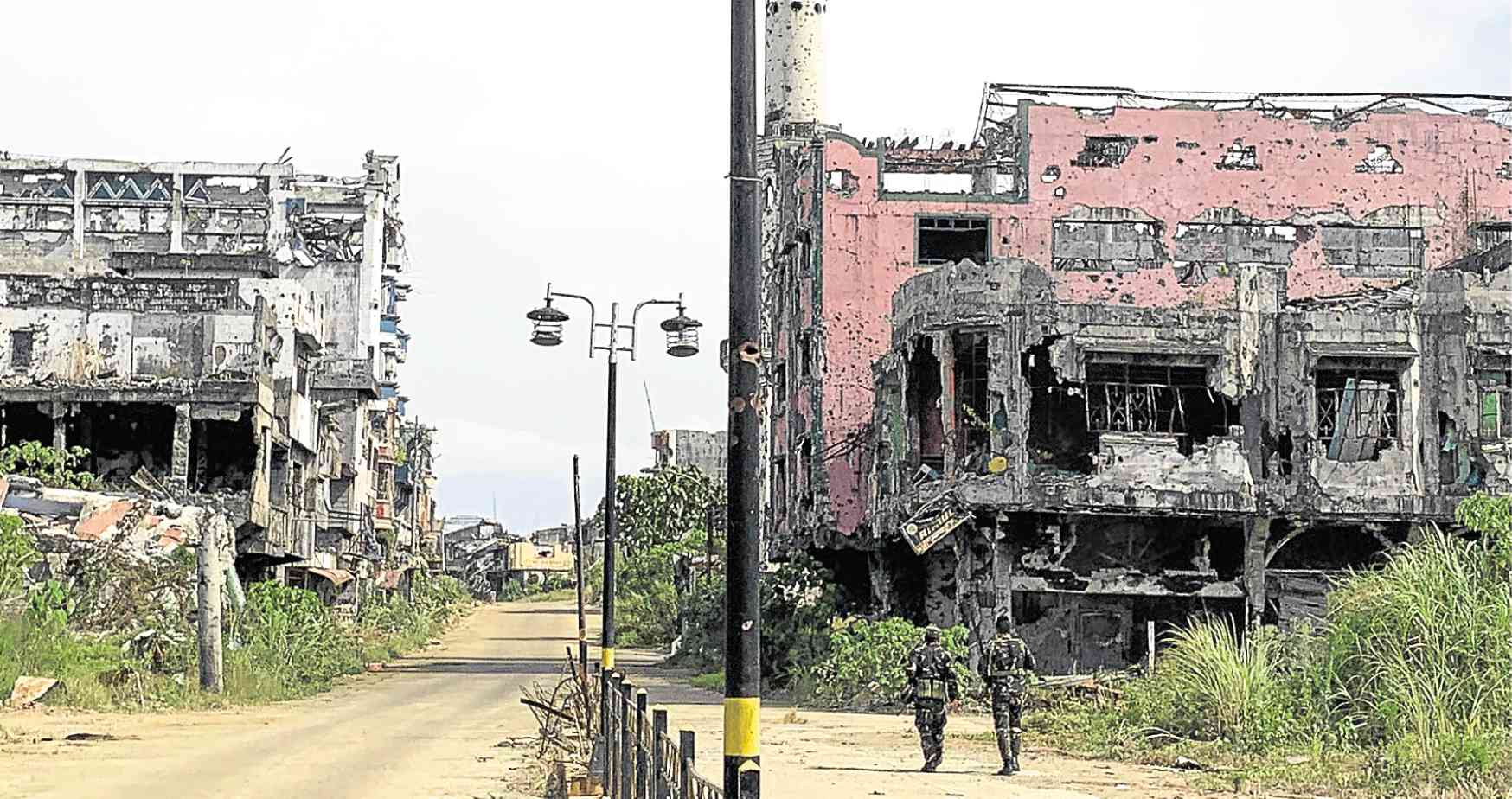
(File Photo) AWAITING REHAB The center of the five-month fighting between Islamic State-linked armed groups and government soldiers in Marawi City in 2017 is awaiting rehabilitation. —JEOFFREY MAITEM
MANILA, Philippines — Only P10.7 billion of the estimated P350 billion foreign donations pledged for the rehabilitation of war-torn Marawi City were channeled through the national government, according to Housing Secretary Eduardo del Rosario, head of the Task Force Bangon Marawi.
Facing a panel of the Commission on Appointments (CA) for his confirmation as housing chief, Del Rosario was quizzed on the status of assistance pledged by other countries for the rehabilitation of Marawi City.
“In as far as projects are undertaken directly by our development partners…So far, what we have received came from the Asian Development Bank, China, and the government of Japan for a total of [P10.7] billion only,” Del Rosario told lawmakers.
Before this, San Juan City Rep. Ronaldo Zamora, who raised the issue, said the pledged donations amounted to $7 billion or an estimated P350 billion.
“I’d like to know what happened to that money, if that money arrived to us, in the form of projects or other interventions,” Zamora asked.
“Whether any money is received in a special fund administered by the department of finance, can we have an idea of what happened to basically $7 billion,” he added.
In the case of Japanese assistance, Del Rosario said the government of Japan channels its assistance through the Philippine government.
The Japanese government, in coordination with the Philippine government, will “pinpoint” which projects will be undertaken.
He noted that the Japanese government has funded the construction of 1,500 permanent shelters in Marawi City.
For donations pledged by other counties, he said they are usually channeled through non-governmental groups (NGOs), that will then undertake programs.
“Most countries will just announce that they are pledging or giving support in this amount, but with regards to the project implementation, they go directly on the grounds and mostly for early intervention activities,” he said.
If the U.S. pledges to provide support in a specific amount, he said it will not be given to the Philippine government. It is instead channeled through the United States Agency for International Development (USAID) which has NGOs that will undertake the program.
“It does not pass through the national treasury, but is undertaken directly by countries concerned,” he said.
Nevertheless, Del Rosario said the NGOs will still have to coordinate with concerned local government units and inform the task force of their projects.
“They also provide relief assistance, they give goods for the people directly affected and they tap NGOs and civil society organizations to undertake this,” he said.
“If it’s relief assistance, they coordinate with the [Department of Social Welfare and Development],” he added.
Del Rosario also noted that most international pledges involve capacity-building projects.
“Most of the interventions are non-infra projects,” he said.
But Zamora said such interventions do not really provide amelioration to the situation in Marawi City, where he said housing is largely needed.
“So of the $7 billion that we were made to believe we would be getting, you have them basically in terms of what canned goods? Rice?” the lawmaker said.
But Del Rosario said that each country has its own protocols and priorities.
“We do not like to intervene,” he said.
The bloody war between the Islamic State (IS) linked Maute group and government forces — which broke out in May 23, 2017, and lasted for five months — led to the significant destruction of lives and property in the Islamic city.
Thousands of survivors were displaced and were forced to live in temporary shelters provided by the government.